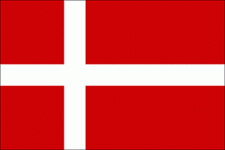
The UN Committee on the Elimination of Racial Discrimination (CERD) published conclusions on the Danish context, highlighting a number of areas in which the country should improve.
The “Ghetto” label
According to the committee, using the ethnic origin of residents as one of the criterium for labelling a residential area “vulnerable” (formerly described as “ghetto”) constitutes ethnic and racial discrimination, which can result in the stigmatization of these people in various areas of life. The committee writes that the state should therefore refrain from using the percentage of immigrants and their descendants from “non-Western” countries living in a certain area as a basis for applying stricter laws and measures in that area. A previous EWSI article discusses this issue in more detail.
Action plan against racism
The state has taken no steps towards developing a national action plan against racism despite previous recommendations from the committee to do so. The committee is concerned about underreporting of and a lack of comprehensive data on hate crimes and hate speech in Denmark. It recommends that awareness be raised of what constitutes hate crimes, and of which forms of hate speech are punishable under criminal law. It also requests authorities to set up a data collection system in which racist hate crimes and hate speech incidents are registered separately with disaggregated data, including offence category, type of motivation, target group, and judicial follow-up.
Use of the terms “Western” and “non-Western”
The committee is concerned that the terms “Western” and “non-Western” as used in the legislation and policies of the state without any reasonable grounds may lead to the marginalisation and stigmatisation of those people classified as “non-Western”, and that this could create a distinction between those considered “real Danes” and those seen as “other”.
Racial profiling
The committee writes that it is concerned about the lack of a clear prohibition against racial profiling and operational guidelines for police and other law enforcement officers to prevent and combat racial profiling, as well as other policy measures to combat racial profiling. It also notes the low proportion of police officers with a non-Danish ethnic background, which is only 2.3% (those with a non-Danish ethnic background represent 9% of the country's total population). It is recommended that the state defines and prohibits ethnic profiling clearly in legislation, registers the ethnic origin of arrested persons in order to obtain statistical data, and intensifies efforts to include more people with an ethnic minority background in the police.
Interpretation in health care and COVID-19
The committee is also concerned by reports showing that access to quality interpretation in languages spoken by refugees and migrants continues to be limited in the health care system, thus jeopardising the right to health for those affected. It recommends that Denmark provides access to qualified and properly trained interpreters in the languages most frequently used by refugees and migrants. Another issue of concern is the higher number of positive cases and lower percentage of vaccinations among Denmark’s ethnic minorities during the COVID-19 pandemic, in comparison with the native population. A lack of interpretation and translation has allegedly been one of the reasons for this difference.
Refugees and asylum seekers
The Danish state revokes or denies the extension of residence permits for people from Damascus and Rif Damascus, despite the ongoing reported risks they may face upon return to these areas, which may amount to a violation of the principle of non-refoulement. The committee is concerned by this, and by the recent amendment to the Danish Aliens Act (L226) that constitutes the legal framework for transferring asylum application processing and subsequent protection to a third country outside the European Union. The committee reminds Denmark of its obligation under relevant international law regarding the protection of asylum seekers, and calls on the state to revisit its evaluation of designating Damascus and Rif Damascus as safe zones.
Citizenship
The committee is concerned that the increasingly restrictive conditions for Danish citizenship have resulted in lowering the number of young people born and raised in the state who are able to become Danish citizens. Such restrictions may create barriers to their full belonging to and identification with Danish society. The committee therefore recommends that Denmark evaluate the proportionality of citizenship rules that prevent persons born and raised in Denmark from obtaining citizenship and assess their impact, in particular on young people.
Details
- Publication dates
- Geographic area
- Denmark
- Source
- Posted by
